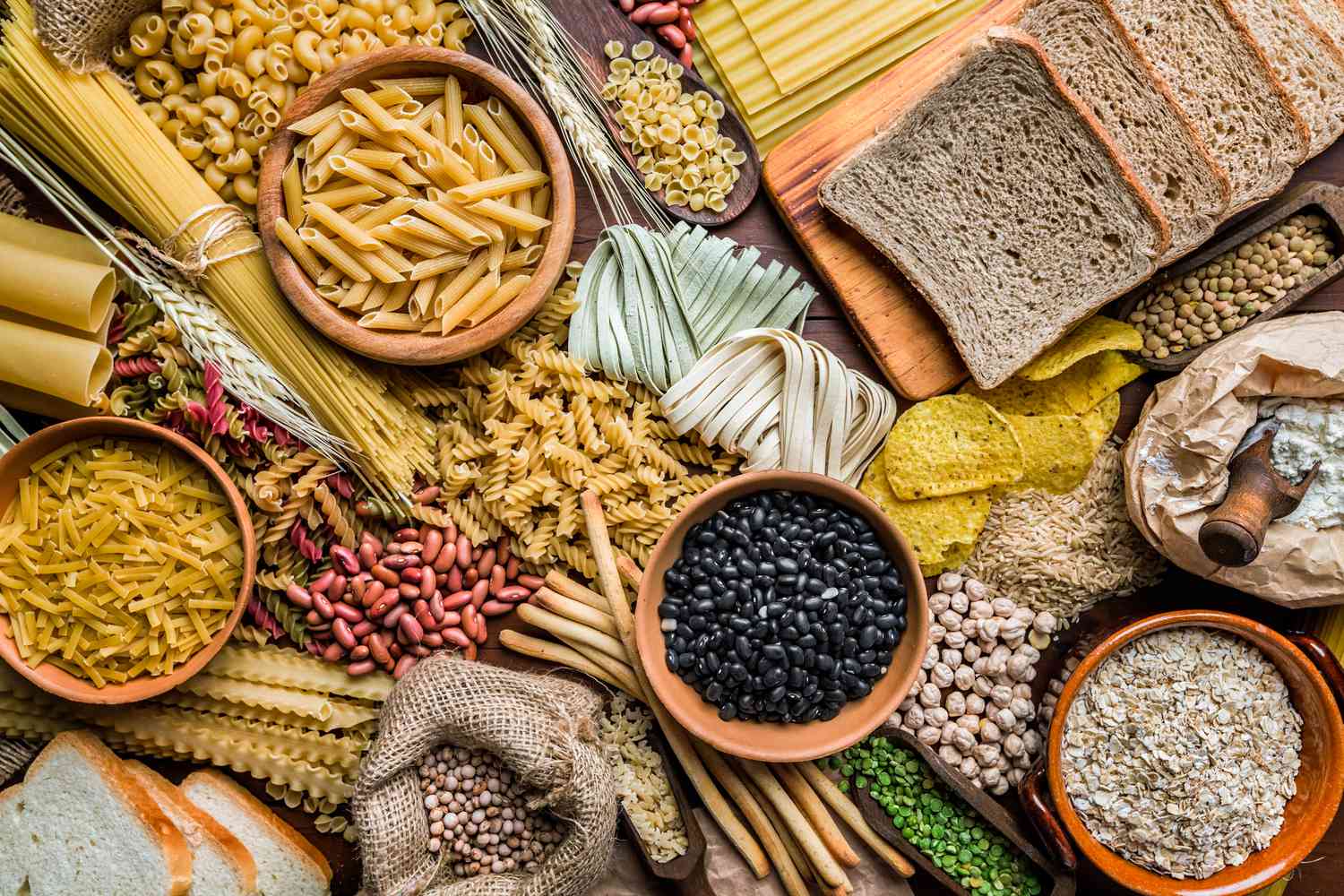:max_bytes(150000):strip_icc():format(jpeg)/GettyImages-1178795919-dfee252288c14f22bca86c415053d805.jpg)
Love, hate, or fear them; carbohydrates are an incredibly important nutrient. These substances, consisting of carbon, hydrogen, and oxygen, fuel all sorts of bodily functions. Though you can technically live without them in the short term, nixing them long-term is likely problematic for health. According to older research, going without carbs for too long could lead to complications like heart arrhythmias, osteoporosis, kidney damage, increased cancer risk, impairment of physical activity, and lipid abnormalities. And since carbs are found in numerous everyday foods, it would be difficult to ditch them entirely.
So, why are carbs such a big deal? Below, we’re diving into exactly what this macronutrient does for the body.
Provide Energy for Daily Functioning
You may have heard that carbs provide 4 calories per gram. And what are calories? Energy, of course. Carbs supply much-needed energy to your cells, especially brain cells, red blood cells, and nervous cells. After you’ve eaten food containing carbohydrates, your digestive system breaks the carbs down into glucose (aka blood sugar), which your body converts into the fuel molecule ATP. With enough ATP, you can go about your daily activities powered with the energy you need.
Power Your Brain
As mentioned, carbs are the preferred fuel for your brain. In fact, since the brain is so rich in nerve cells, it uses one-half of all the energy derived from sugar in the entire body. In other words, your brain loves carbs. This is why, when you consume low amounts of these macros, you may experience cognitive disruptions like brain fog, irritability, or fatigue.
However, this doesn’t mean it’s a good idea to overdo it on any old carbs (like the kind in sweets and ultra-processed foods). Research shows that eating more simple sugars is associated with decreased cognition levels, whereas eating more complex carbs (whole grains, fruits, and vegetables) correlates with healthier brain aging and improved memory.
Fuel Exercise
In terms of exercise, carbs are like fuel for your tank. When you engage in aerobic activity like running, biking, or swimming, your body breaks down glucose quickly for energy. Then, after your workout is complete, refilling with carbs promotes recovery, since these macronutrients replenish your stores of glycogen. (These are the carbohydrate reserves your body keeps on hand in your muscles and liver.) This way, the next time you hit the gym, your body has enough oomph to keep going.
Get Stored for Extra Energy
Glycogen stores aren’t just useful when you’re exercising. This packed-away version of glucose is available to your body any time it needs to “withdraw” extra glucose, such as when blood sugar dips low between meals or during periods of fasting. Eating carbs regularly creates a healthy reserve of glycogen in your muscles and liver.
Spare Protein
If necessary, the body can use protein for energy—but it prefers not to since protein can be used for many other important purposes, like building muscle and repairing tissues. When the body can use carbs for energy, it “spares” protein for other, more necessary tasks.
Regulate Your Blood Sugar
Your body constantly performs the complex dance of maintaining the right amount of sugar in your blood. Every time you eat a food that contains carbs, your body breaks them down into glucose, which enters the blood. Next, the pancreas releases insulin to allow glucose to enter cells and provide them with energy.
Consuming high amounts of carbohydrates (especially the simple kind found in foods like white sugar and refined grains) can elevate blood sugar. For people with conditions like insulin resistance, pre-diabetes, or diabetes, excess carb intake can cause blood sugar to become dangerously high. For this reason, staying conscious of carb intake is critical for people with these issues.
Benefit Gut Health
Did you know fiber is a type of carb? (And an extremely helpful one, at that?) Consuming plenty of fiber keeps your digestion functioning smoothly, minimizing the likelihood of both constipation and diarrhea and promoting the health of the good bacteria in your gut. When you have a thriving microbiome, you’ll likely experience all sorts of health benefits, including improved immune function and a lower risk of inflammatory conditions.
How Many Carbs Do I Need Per Day?
Every person’s body is unique, and there’s no perfect number of daily carbs. According to the acceptable macronutrient distribution range set by the Food and Nutrition Board of the Institute of Medicine, 45-65% of total daily calories should come from carbohydrates. Knowing your daily calorie target, you can calculate your ideal range of carbohydrates by multiplying your total calories by 0.45-0.65, then dividing by 4 (since there are 4 calories per gram of carbs). On a 2,000-calorie-per-day diet, for example, at 45-65%, carbs should comprise 900-1,300 calories, which equals 225-325 grams per day.
Choosing the Right Carbs
The nomenclature around “good” carbs and “bad” carbs can be a little confusing—and possibly inaccurate. Simple carbs (the kind with shorter chemical chains) have often been deemed “bad,” while complex carbs (those with longer chains) are typically viewed as “good.” But both simple and complex carbs have their upsides.
Simple carbohydrates like the kind in table sugar and refined grains provide a quick burst of energy, which can be useful for elevating blood sugar quickly or fueling athletic activities. However, simple carbs can raise triglyceride levels and spike and drop blood sugar, leaving you feeling sluggish and hungry. Plus, many foods with simple sugars aren’t all that nutrient-dense. (Think: candy bars, pastries, and white pasta.)
Complex carbohydrates, on the other hand, take longer to break down thanks to dietary fiber, providing smooth, stable energy levels. You’ll find these in starchy vegetables like corn, peas, sweet potatoes, whole grains like whole wheat bread, pasta, and beans. Still, complex carbs won’t give you the near-immediate energy burst you’ll get from simple ones.
Takeaway
Carbs may get vilified as fattening or unhealthy, but of the three macronutrients, they’re the ones the majority of us need the most. These chains of carbon, hydrogen, and oxygen perform multiple bodily functions. Getting enough of them from nutritious sources promotes—not detracts from—your health.




